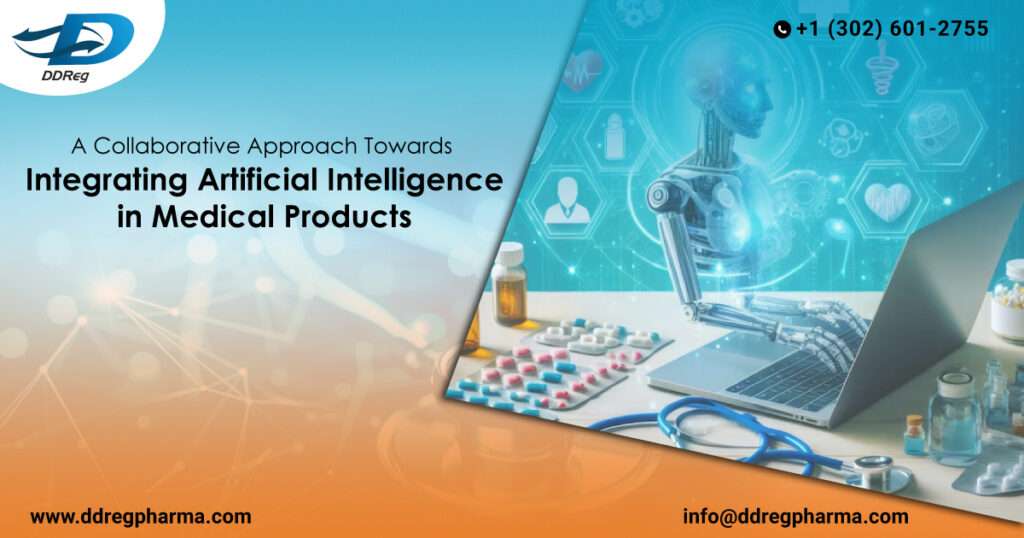Imagine a world where medical care is not just about treatment but about prediction and prevention. This is what artificial intelligence (AI) in healthcare promises, while also supporting innovation. Regulatory agencies across the globe recognize that AI technology work through a complex series of various processes, highlighting the need for end-to-end management across the lifecycle of medical products. From conception to implementation, continual monitoring and iteration guarantees sustained efficiency while minimizing risks as well as ensuring compliance with regulations.
The United States’ Food and Drug Administration (US FDA) has taken steps toward ensuring responsible and ethical integration of AI across medical product life cycle. The FDA’s Centers for Biologics Evaluation and Research (CBER), Drug Evaluation and Research (CDER), Devices and Radiological Health (CDRH), and Office of Combination Products (OCP) are collaborating to ensure that AI achieves its full potential to safeguard public health. In a joint effort, they’re shedding light on how AI is managed throughout the medical product lifecycle from conception to deployment.
The establishment of a risk-based regulatory framework grounded in strong principles, standards, and best practices is the foundation of the FDA’s strategy. This framework is adaptable across multiple AI applications and marks the agency’s commitment to upholding safety, efficacy, and ethical standards in medical product development.
Areas of Focus for the Development and Use of AI across the Medical Product Lifecycle
The US FDA in collaboration with the CBER, CDER, CDRG, and OCP published a paper to highlight the areas of focus with respect to the development and use of AI and related technologies across the entire lifecycle of medical products.
Foster Collaboration to Safeguard Public Health: To create a regulatory approach centered on patients, the FDA works with various interested parties such as researchers, organizations representing patients, schools and international regulators too. The agency also seeks multi-faceted views about artificial intelligence (AI) at all stages of its development through continued partnership which enhances transparency as well as governance among others.
Advance the Development of Regulatory Approaches that Support Innovation: In order for integration of AI systems not only protect public health but foster innovation too, the FDA commits itself towards providing regulatory certainty besides clarity. This involves keeping track of patterns; backing science related regulations and releasing guidelines that will enable safe use across medical product development by different manufacturers etcetera.
Promote the Development of Harmonized Standards, Guidelines, Best Practices, and Tools: While working towards safety and effectiveness standards in AI enabled medical devices or products, the FDA recognizes need for standardization measures thus prioritizing creation of such within industry best practices. The agency should refine evaluation processes; advocate continuous safety monitoring over extended periods while enforcing data validity during all stages where artificial intelligence is employed in this particular field.
Support Research Related to the Evaluation and Monitoring of AI Performance: The FDA supports scientific studies aimed at assessing performance parameters associated with different types of AI systems used in healthcare delivery settings including hospitals et cetera to ensure patient safety.
Conclusion
As FDA charts a course toward a future where AI revolutionizes healthcare, the agency remains steadfast in its commitment to patient safety, efficacy, and innovation. CBER, CDER, CDRH and OCP are prepared to adjust and grow with an anticipatory vision; they want to ensure that AI brings richness into the health care system while not putting people at risk.
As part of their attempts to incorporate AI into medical product development, the FDA is taking a vital step towards unleashing the potential of AI in healthcare. In order to enable patient care improvements through AI powered medical products and better outcomes for public health overall, the FDA hopes for an environment that encourages invention without compromising safety or effectiveness standards. Through ongoing collaboration and adaptation, FDA remains committed to steering the course towards a responsible and ethical AI-enabled healthcare landscape.
DDReg offers end-to-end regulatory services in the USA for pharmaceuticals. The subject matter expertise, industry knowledge, and presence in the USA ensures seamless regulatory submissions and post-marketing safety surveillance. Read more from DDReg’s experts here: The Impact of Artificial Intelligence in the Lifecycle of Medicines

